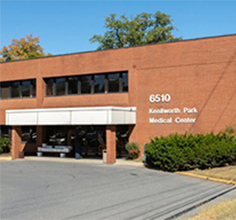
Health is not merely a state of being; it's a continuous journey and a way of life. Achieving and maintaining a vigorous and satisfying life requires mindfulness and proactive measures. For women, understanding and prioritizing health involves regular medical tests that can detect potential issues early and ensure overall well-being.
In this brief article brought to you by Southern Maryland Medical Group, we outline essential medical tests that every woman should consider as part of her health journey. If you have any questions or concerns, you are always welcomed to call Southern Maryland Medical Group to schedule with a licensed primary care physician today.
A Pap smear (or Pap test) is a procedure to test for cervical cancer in women, and an HPV (Human Papillomavirus) test checks for the virus that can cause these cancers.
Regular Pap smears and HPV testing are important because they can detect abnormal cells in the cervix before they turn into cancer. Early detection through these screenings significantly increases the chances of successful treatment.
It is typically advised women start getting Pap smears at age 21 and continue every three years if results are normal. After age 30, a combination of Pap smear and HPV testing every five years is recommended, or a Pap smear alone every three years.
A mammogram is an X-ray of the breast used to detect breast cancer. Mammograms are essential for early detection of breast cancer, often identifying lumps before they can be felt and before symptoms develop.
Women aged 40 to 44 should have the option to start annual mammograms. From ages 45 to 54, annual mammograms are recommended. Women 55 and older can switch to mammograms every two years or continue yearly screening.
A bone density test (DEXA scan) measures the density of minerals (like calcium) in your bones. This test is crucial for diagnosing osteoporosis, a condition that weakens bones and makes them more prone to fractures. Early detection allows preventive treatments to strengthen bones.
Women should start getting bone density tests at age 65. However, those with risk factors such as a family history of osteoporosis, low body weight, or previous fractures might need to start earlier.
Measuring the pressure in your arteries as your heart pumps blood is essential because high blood pressure, also known as hypertension, can lead to serious health problems like heart disease and stroke.
Blood pressure should be checked at least once every two years starting at age 18. More frequent checks may be needed if you have risk factors like obesity or a family history of hypertension.
The thyroid is a part of your endocrine system and controls many of your body's important functions by producing and releasing (secreting) certain hormones. Thyroid disorders can affect metabolism, energy levels, and overall health. Blood tests measure levels of thyroid hormones (TSH, T3, and T4).
Women should have their thyroid function tested starting at age 35 and every five years thereafter. More frequent testing may be needed if symptoms or risk factors are present.
We can’t look after others until we can look after ourselves. Prioritize your health and remember to check up with your primary care doctors. If you would like to schedule an appointment or arrange a walk-in with a licensed physician, then call Southern Maryland Medical Group.
Southern Maryland Medical Group has 3 convenient locations to provide professional medical care services in the Southern Maryland area. Call or schedule an appointment with one of our locations to get medical care help.

5801 Allentown Road, Suite 400 Camp Spring, MD 20746
Phone: 301-868- 0150
Billing Inquiries: 301-552-1270
Fax: 301-868-0243

7500 Greenway Center, Dr #1200 Greenbelt, MD 20770
Phone: 301-486-7580
Billing Inquiries: 301-552-1270
Fax: 301-486-7581

6510 Kenilworth Ave, Ste 1400, Riverdale MD 20737
Phone: 301-618-0771
Billing Inquiries: 301-552-1270
Fax: 301-618-0772